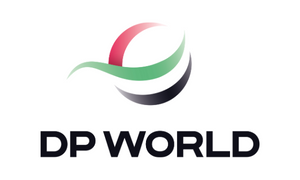2024 Agenda
Master complexity, control your supply chain destiny
The Henry Hotel, Dearborn, MI | September 24-26, 2024 | Hybrid
PRE-CONFERENCE: TUESDAY SEPTEMBER 24TH
07:45 EDT
Automotive Logistics Golf Day
Tee off your conference experience in style, joining colleagues and industry peers on the pristine greens and landscaped fairways of one of Michigan's premier golf courses.
IN PARTNERSHIP WITH
GOLF DAY TIMINGS
7:45 - Coaches from The Henry Hotel
8:30 - Tee-off
13:30 - Lunch & prize giving
15:00 - Coaches to return to The Henry Hotel
17:30 - 21:00 EDT
Welcome Cocktail Reception at The Henry Hotel, Dearborn, MI
Join us on the eve of North America’s premier gathering of automotive logistics and supply chain leaders and experts for a relaxed and engaging evening of networking and socialising at the Henry Hotel in Dearborn. Catch up with colleagues and old friends, make new connections and kick-start the discussions on the key trends, challenges and opportunities driving the industry forward. Dress code – business casual
HOSTED BY

08:00 EDT - 60 mins
Conference open for registration, networking and refreshments
09:00 EDT - 15 mins
Welcome to Automotive Logistics and Supply Chain Global 2024
Automotive Logistics’ Chief Content Officer Christopher Ludwig opens the conference with insight into key themes, and shares an outlook on the North American automotive logistics and supply chain market.
MODERATOR

Christopher Ludwig, Chief Content Officer, Automotive Logistics & Ultima Media
09:15 EDT - 60 mins
Stream 1: Performing under pressure – Creating an elite logistics network
Unlock the strategies for building and empowering an unstoppable logistics network and automotive supply chain across North America as leaders from manufacturers and logistics providers share how they are performing despite disruption across borders, shifts in demand and powertrains, supplier and capacity challenges across inbound and vehicle logistics. Learn more about the processes, systems, investment and logistics strategies that leading OEMs and suppliers are developing.
SPEAKERS

Mercedes Figueroa, VP Logistics, Stellantis North America

Gabriel Mair, Commodity Procurement Director, Transport/Logistics and Capex, GKN Automotive

Jim Mancini, Vice President, North American Surface Transportation, C.H. Robinson

Christoph Seitz, Global Vice President, Finished Vehicles, DP World
MODERATOR

Christopher Ludwig, Chief Content Officer, Automotive Logistics & Ultima Media
10.15 EDT – 45 mins
Networking, meetings and exhibition
Grab a bite to eat and take a walk around the exhibition hall to make new connections or future business partners and to catch up with colleagues and friends.
11.00 EDT – 60 mins
Stream 1 - Panel: Borderline brilliance – creating seamless international parts flows
As demand for cross-border logistics services soars, discover the solutions, new trades lanes, strategies and tools streamlining customs processes, tracking material and easing international flows.
SPEAKERS

Jessica Hanson, Vice-President Logistics, Bosch North America

Skotti Fietsam, Senior Vice President Supply Chain, Accuride

Frank Bateman, Vice President Supply Chain, Ryder Supply Chain Solutions

Sean Leary, General Manager Automotive and Mobility, DSV
MODERATOR

Christopher Ludwig, Chief Content Officer, Automotive Logistics & Ultima Media
Stream 2: A finished vehicle logistics network fit for the future
Changing demand patterns, trade and technology continue to require transformation and investment in vehicle logistics networks, including truck and railcar fleets, shipping and port capacity and EV charging infrastructure. Learn more about the requirements for more flexible, digital and sustainable North American vehicle logistics.
SPEAKERS

Todd Myers, Director, Finished Vehicle Logistics, North America,Nissan Group of North America

Agustin Sustaita, Chief Commercial Officer, D-Troy Logistics

Charles Franklin II, Senior National Manager, Business Development, Glovis America

Val Kucherenko, Director Railway Education at the Center for Railway Research & Education, Eli Broad College of Business, Michigan State University
MODERATOR

Richard Logan, Senior Content Producer, Automotive Logistics & Ultima Media
Stream 3: Workshop: Untangling digital spaghetti | Recipes for logistics system integration
This interactive workshop, led by Daimler Truck North America’s Kiki Nice, will bring stakeholders together to exchange and work together on common challenges in connecting logistics systems and tools, and share common solutions that will help logistics managers make significant strikes in digital transformation.
Workshop leader

Kiki Nice, Manager Supply Chain, Detroit Diesel Daimler Truck North America
Digitalisation can bring real-time visibility of freight and inventory, network optimisation and automation opportunities. But it rarely comes with a simple click. Logistics managers must work across a tangle of systems and data, from scheduling to TMS, WMS, inventory, packaging and demand planning, often caught by challenges in interoperability, differing data standards or legacy systems.
But there are tools, processes and partnerships that can help stakeholders improve system integration and operability, improving useability across systems, driving efficiency and helping companies gain more valuable data analytics and insights.
This interactive workshop, led by Daimler Truck North America’s Kiki Nice, will bring stakeholders together to exchange and work together on common challenges in connecting logistics systems and tools, and share common solutions that will help logistics managers make significant strikes in digital transformation.
Join this workshop to:
-Establish common integration and operability challenges in logistics systems
-Identify frameworks to connect logistics systems, including software interfaces and cloud-based solutions
-Share solutions for improving access and systems use across stakeholders and partners
-Set out a roadmap with practical steps and milestones to improve system integration
12:00 EDT – 45 Mins
Stream 1 - Keynote: Market intelligence: North American and global production and sales outlook
Equip yourself with the latest sales and production forecasts, including the outlook for electric vehicles, and in-depth analysis of the key market drivers and disruptors.
SPEAKER

Mike Wall, Executive Director, Automotive Analysis, S&P Global Mobility
MODERATOR

Christopher Ludwig, Chief Content Officer, Automotive Logistics & Ultima Media
Stream 2: Breaking down barriers: Women in Supply Chain Forum & Networking
Break down barriers, build connections, learn from and exchange with forward-thinking peers and hear how industry leaders are driving cultural change and supporting women in the automotive supply chain.
SPEAKERS

Skotti Fietsam, Senior Vice President Supply Chain, Accuride

Mary Helen Montalvo, Director of NA Business Development, Tri-National

Viriana Columbia, Head of Automotive Vertical - North America, Maersk
MODERATOR

Richard Logan, Senior Content Producer, Automotive Logistics & Ultima Media
13.45 EDT – 45 mins
Stream 1 - Keynote & panel: Top tier logistics – Managing excellence in end-to-end automotive supply chains
Automotive OEMs and suppliers face cost pressures and greater demands for visibility and reliability, whilst managing uneven production patterns. But there are opportunities to work together more strategically, from flexible capacity to tier-N alignment, through to logistics execution and better understanding of end customers. Take a deep dive into the unique and complex logistics challenges facing major component suppliers and unlock the winning strategies and best practises for managing inventory and sub-tier suppliers, controlling costs, and navigating volatile forecasts.
SPEAKERS

Mike Tickle, Director of Supply Chain Planning & Performance, JLR

Patrick Bauer, Vice-President Supply Chain, IAC Group

Mike Erickson, President, AFMS

Tom Regan, Senior Vice President, Ryder Systems, Inc.
MODERATOR

Christopher Ludwig, Chief Content Officer, Automotive Logistics & Ultima Media
Stream 3 - Workshop: Top quality vehicle logistics: Driving collective competitiveness in damage prevention and quality management
Join this interactive workshop with Ford and work with vehicle logistics stakeholders on how to improve trust and transparency and drive collective efficiency through damage limitation and quality management.
SPEAKER

Benjamin Pohl, Supervisor – Vehicle Shipping Quality, Claims and Damage Prevention, Ford Motor Company
Across the outbound network, quality holds and damage rates have been on the rise as OEMs have worked to overcome capacity challenges by relying more on new carriers and sub-contractors, alternative transport modes, temporary storage and new trade routes. Meanwhile, EV models have raised new challenges, such as standard chocks and ties being insufficient to secure heavier vehicles. However, OEMs and their partners are razor focused on making improvements.
In this session, learn how Ford is prioritising quality performance across its vehicle distribution network and leveraging data analytics to identify and resolve damage incidents more efficiently, accelerate claims processing and drive the collective competitiveness of the vehicle supply chain. Collaborate directly with Ford’s vehicle logistics leadership, along with other OEMs, carriers and key vehicle quality stakeholders, to improve damage prevention, enhance transparency and accountability, minimise disruptions and raise quality standards throughout the network.
14.30 EDT – 45 mins
Stream 1 - Panel: Purchasing power – a buyer’s guide to automotive logistics
Manufacturers and logistics providers need to balance many considerations when choosing carriers and service providers, from quality, speed, efficiency and digitalisation, along with rising consideration for customer focus, innovation and sustainability. Step into the world of logistics procurement to understand the KPIs driving purchasing decisions, the digital tools used to manage RFQs and performance, as well as deepening partnerships that allow manufacturers and providers to thrive.
SPEAKERS

Sid Philar, Senior Manager, Global Logistics Procurement, Lucid Motors

Maxim Serov, Director, Supply Chain Management Americas Market North & HOLON, Benteler Automotive

Philippe Grinstein, Chief Operating Officer, CNW

Richard DeBoer, Executive Vice President, Supply Chain Logistics, Carter Logistics
MODERATOR

Richard Logan, Senior Content Producer, Automotive Logistics & Ultima Media
Stream 2: Lightning Presentations: Logistics Innovation Showcase
Discover the latest and greatest logistics innovations from emerging and established logistics providers and technology specialists. Hear a series of lightning pitches on solutions and innovations addressing key logistics and supply chain pain points.
SPEAKER

Mykola Pysklyvets, CEO / Owner, Standard Trucking

David Salerno, Director 4flow Management, 4flow

David McGuffie, President, FreightVerify
MODERATOR

Riad Mannan, Content Producer, Automotive Logistics & Ultima Media
15.15 EDT – 30 mins
Networking & refreshments
Grab a bite to eat and take a walk around the exhibition hall to make new connections or future business partners and to catch up with colleagues and friends.
15.45 EDT – 45 mins
Stream 1 - Keynote & panel: Resiliency in action – global lessons in leaner, smarter, greener logistics
Faced with market and geopolitical volatility, automotive manufacturers and partners are seeking increased flexibility, efficiency and predictability in supply chain planning and operations to mitigate risk and best use capacity. In this session, hear from global leaders, including from BMW Group, on how to effectively steer production networks, localise supply chains and digitalise logistics operations for greater resiliency.
SPEAKERS

Pedro Garcia, Global Head of Supply Chain Management, Nikola Corporation

Dr Ulrich Wieland, Vice-President Production Control, Logistics, Material Control, BMW Manufacturing Co.

Adam Jones, Director of Business Development and Sector Strategies, Unipart Logistics

Luiz Solia, Vice President, Industry Principal, Kinaxis
MODERATOR

Christopher Ludwig, Chief Content Officer, Automotive Logistics & Ultima Media
Transformation across automotive products and production requires intense focus on flexible supply chains that can adapt to customer demands and anticipate disruption. Even as manufacturers invest and prepare for electric vehicle and battery production in North America, they must be ready to produce ICE and hybrids at scale, and quickly pivot logistics networks based on efficiency, quality, environmental and cost requirements.
That is why supply chain leaders today are investing in tools and partnerships to further increase agility, including through lean, smart and green logistics. In this session, global experts from major manufacturers and suppliers will share best practice and insights on how to navigate supply chain transformation with greater resiliency.
Key discussion points will include:
- Insights on designing logistics operations to reduce waste, emissions and cost
- Logistics considerations in reducing value chain complexity and increasing localisation
- How to steer effective and flexible vehicle programme and production planning
- Digitalisation and automation opportunities for more flexible and error-free logistics.
Stream 2: Precision finished vehicle logistics – Improving efficiency, quality and delivery through data and process optimisation
OEMs and logistics providers are putting more focus on improving vehicle logistics handling and transport performance, with a strong focus on logistics and carrier data across the order-to-delivery cycle. Using data analytics, process mining and real-time location tracking, this session explores carmakers and their partners can transport vehicle logistics.
SPEAKERS

Oleg Gusikin, Senior Director, Supply Chain Analytics, Ford Motor Company

Julian Thomßen, Global Automotive & Manufacturing Industry Lead, Celonis

Sean Baltazar, Senior Vice President of Sales, RPM

Anthony Butler, Director of Product – Logistics, Cognosos

Riad Mannan, Content Producer, Automotive Logistics & Ultima Media
16.30 EDT – 60 mins
Stream 1 - Keynote & panel: Mastering supply chain complexity: flexibility, visibility, connectivity
The North American automotive supply chain remains volatile and subject to disruption, whether unforeseen disasters, extreme weather, challenges at the border, market changes and geopolitical and government uncertainties. However, logistics and supply chain managers are increasingly the problem solvers, helping to ensure production, distribution and service continue. Learn more about the strategies, technology, communication and partnerships that are helping major automotive OEMs to master this complexity.
SPEAKERS

Paulo Monteiro, Head of Logistics, Volkswagen Group of America Chattanooga Operations

Gerardo de la Torre, Regional Senior Director, SCM Supply Chain Mgmt USA & MEX, Nissan Group of North America

Daryl Knight, Chief Commercial Officer, ProTrans

Micah Holst, EVP of Business Development, Ascent Global Logistics
MODERATOR

Christopher Ludwig, Chief Content Officer, Automotive Logistics & Ultima Media
18.00 – 21.00 EDT
Automotive Logistics and Supply Chain Global Networking Dinner, hosted by Ryder on the Detroit Princess Riverboat
Amidst the stormy weather and choppy waters of the automotive logistics and supply chain seas, step aboard the Detroit Princess for an evening of smooth sailing, uninterrupted networking and easy-going entertainment. Discuss the day’s key talking points, exchange business cards and ideas, and enjoy delicious food and refreshing beverages as you take in the stunning views of the Detroit and Windsor skylines.
Dress code - Business Casual
HOSTED BY
8.00 EDT – 60 mins
Conference open for registration, networking and refreshments
Re-group and re-fuel for day two with some early morning refreshments, and kick start the conversation with new-found colleagues and connections.
9.00 EDT – 60 mins
Stream 1 - Keynote & panel: Pathway to enlightenment – A roadmap for connected and predictive supply chains
Understand the strategies and technologies that are transforming automotive logistics planning and operations, from improved data sharing and visibility, interoperable logistics systems to leverage the potential of data analytics and artificial intelligence. Digital and logistics leaders will share how they are streamlining decision making and generating value across supply and demand planning, inbound and vehicle logistics.
SPEAKERS

David Leich, Executive Director Global Supply Chain, General Motors

Marzell Bandur, Vice-President Transport Management & IT Innovations, Robert Bosch

Salim Shaikh, CVP Industry Strategy Automotive, Blue Yonder

David Resetar, Senior Vice President Global Head of Vertical Market Automotive, DB Schenker, Inc.
MODERATOR

Christopher Ludwig, Chief Content Officer, Automotive Logistics & Ultima Media
10.00 EDT – 45 mins
Stream 1 - Keynote & panel: Automation acceleration: balancing systems, process and people
Learn how a holistic approach towards integrating systems, optimising processes and empowering and upskilling people are helping manufacturers unlock the benefits of automation opportunities in logistics, for example in transport and handling, packaging, shopfloor, warehouse and yard operations. Experts will share examples on how logistics automation will help to improve quality, reduce cost and increase productivity.
SPEAKERS

Iván Dávila , Director, Inbound Logistics, Supply Chain Management, Nissan Group of North America

Ryan Rusnak, CTO & Founder, Airspace

Mark Gordon, Senior Director, Supply Chain Solutions, Anaplan
MODERATOR

Christopher Ludwig, Chief Content Officer, Automotive Logistics & Ultima Media
Stream 2 - Panel: Customer-centric supply chains – transforming aftersales and service parts logistics
Hear how leading vehicle and two-wheel manufacturers are re-inventing service parts supply chains in North America, including aligning aftersales supplier orders with production parts, adapting cycle times to serve changing customer habits, and preparing to service greater volumes of electric vehicles and batteries. It's a transformation occurring as OEMs aim to decrease order-to-delivery times, increase distribution options and improve fill rates across the network.
SPEAKERS

Heather Latham, Director, Supplier Management - Customer Care and Aftersales, General Motors

Alfonso Rodriguez, Sr. Director of Supply Chain Planning & Commodity Purchasing, Zero Motorcycles Inc.

Christiane Meyer, Director Strategic Sales, Penske Logistics
MODERATOR

Richard Logan, Senior Content Producer, Automotive Logistics & Ultima Media
The aftersales supply chain is critical to how automotive manufacturers maintain customer satisfaction and loyalty, help dealers and retailers to order and store the right inventory of parts, and to industrywide support profits and margins. In recent years, aftersales supply chains have been adapting to changing customer, technology and regulatory factors, including an ageing car parc and vehicle owners holding onto their cars for longer, at the same time that the share of electric and software-defined vehicles are on the rise. With ecommerce a factor in everyday lives, meanwhile, customers expect their vehicles to be serviced quickly, and to have full visibility of parts and accessory orders.
In response, aftersales supply chain and logistics leaders have been transforming order, inventory and logistics management to meet customer needs. Carmakers such as General Motors, for example, have further aligned supplier management and delivery processes to combine order and supply management between factory and aftersales parts, to help manage prioritisation, and gain better scale and service. Carmakers, meanwhile, have been adapting inventory management across parts and distribution centres to help adjust overall cycle times to better match demand, including the balance between legacy and faster-moving parts.
As battery-powered and software-driven vehicles increase across the North American fleets, meanwhile, both new and existing OEMs are ensuring they have the facilities, skills and partners required to better handle both electric battery and ICE-powered vehicles at the same time.
Join this session for insights on how experts are further adapting to change in the aftersales supply chain, including:
-Supply and demand alignment across production and aftersales parts;
-Strategic changes in cycle times and inventory management to reflect market demand;
-Logistics and supply chain optimisation to reduce order-to-delivery times across North America;
-Preparing for increases in electric vehicle batteries and components across aftersales networks.
10.45 EDT – 45 mins
Networking & refreshments
11.30 EDT – 45 mins
Stream 1 - Panel: Revving up resiliency: mastering supply chain risk management
Hear from risk management specialists and supply chain leaders on the strategies and tools helping to mitigate supply chain risk despite growing complexity.
SPEAKERS

Ana Lucia Ochoa Lorenzini, Global Director Supply Chain Management, Driveline Division, American Axle & Manufacturing

Birdo Richards, VP, Global Sales, Avetta

Dennis McCaffrey, Senior Vice President, RXO
MODERATOR

Richard Logan, Senior Content Producer, Automotive Logistics & Ultima Media
Stream 3 - Panel: Above and beyond: managing talent to drive supply chain excellence
Hear from a panel of industry leaders, passionate about developing and learning from talent and the human factor of logistics, before open exchanges and networking between experienced leaders, aspiring professionals and supply chain management students and professors.
SPEAKER

Daniel Schwartz, Director, Global Distribution Operations - Service, Rivian

Adam Olson, Vice President, Logistics Mobility Americas, Bosch

Julie Luna, Chief Commercial Officer, North American Rail and Intermodal, Jack Cooper
MODERATOR

Riad Mannan, Content Producer, Automotive Logistics & Ultima Media
In an era of unrelenting complexity and rapid transformation, automotive supply chain and logistics management requires visionary leadership, continuous learning and problem solving, and a diverse workforce with a clear sense of purpose and goals.
Join this session to learn valuable leadership lessons on employee empowerment, skill development and future skill and mindset requirements, as well as gaining important insights from professionals rising through the ranks and the next generation of leaders and experts on their ambitions, their values and the tools and support that they need to succeed.
Along with industry leaders and experts, groups of students with focus on supply chain management will be invited to join the event, with the opportunity to ask questions, and also to offer their input on what they need to advance their careers in automotive logistics and supply chain.
Join this interactive discussion to:
- Understand how major manufacturing and logistics organisations are bridging the gap between multiple generations and engaging with the industry’s future leaders and experts to inspire and future proof their businesses.
- Learn how leaders and organisations are sustainably developing talent.
- Hear how industry and academia are collaborating to develop relevant curricula to give aspiring logistics student the right tools, mindset and opportunities to succeed
- Understand how organisations and management styles need to evolve to ensure the automotive logistics and supply chain sector remains an attractive and valued career path.
- Interact directly with students and ambitious professionals to better understand their interests, needs and career goals in automotive logistics and supply chain management.
12.15 EDT – 45 mins
Stream 1: Using logistics as a force for good: scaling greener, more ethical supply chains
As the industry accelerates towards a carbon free future, hear how forward-looking manufacturers and logistics providers are investing in and integrating sustainable supply chains, ethical sourcing and logistics processes. Experts will discuss examples of implementing green transport equipment, alternative fuels and sustainable materials free of forced labour or other unethical processes. Learn how to use your supply chain as a force for good, reducing emissions and waste, and ensuring fairer practices in logistics and packaging.
SPEAKERS

Jeffrey Peterson, Director, Global Trade and Logistics, Driv Automotive

Ken Kellaway, President and CEO, RoadOne IntermodaLogistics

Mirjam Peters, Chief Customer Sustainability Officer, Höegh Autoliners
MODERATOR

Richard Logan, Senior Content Producer, Automotive Logistics & Ultima Media
Stream 3: Next Gen Talent: Student Forum
Bridging the gap between logistics leaders and the next generation of talent, this forum will connect students, professionals and academics for an open exchange on leadership, career advice, employment aspirations and ideas to shape the future of automotive logistics.
SPEAKER

Daniel Schwartz, Director, Global Distribution Operations - Service, Rivian

Adam Olson, Vice President, Logistics Mobility Americas, Bosch

Julie Luna, Chief Commercial Officer, North American Rail and Intermodal, Jack Cooper
MODERATOR

Riad Mannan, Content Producer, Automotive Logistics & Ultima Media
14.15 EDT – 45 mins
Stream 1: Fireside chat: Controlling supply chain destinies – proactive influence, engineering and partnership
Disruption and changes across the supply chain, such as the semiconductor shortage and logistics capacity bottlenecks, have taught supply chain leaders that they cannot be passive and reactive, especially if they want to avoid facing constraints and other limits that could impact the ability to meet customer demand and strategic objectives. In this session, learn how supply chain leaders and organisations are working early in planning and development cycles to influence supply chain operations across functions, including parts design and engineering, vertical integration, purchasing of critical supplies, production and logistics services.
SPEAKER

Jeff Morrison, Senior Vice-President Global Purchasing & Supply Chain, General Motors
MODERATOR

Christopher Ludwig, Chief Content Officer, Automotive Logistics & Ultima Media



